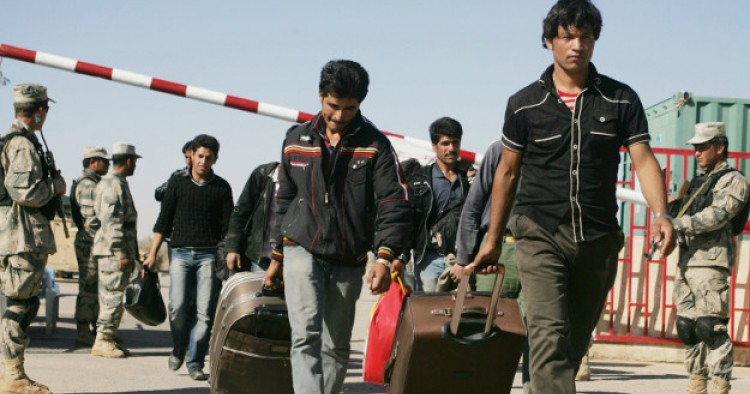Iran has said that it is ready to work with the Afghan government on procedures to legalize the residence of Afghan refugees in Iran. “We can promote cooperation in this area and prepare the ground for legalization of residency of the Afghan guests,” Iranian Foreign Minister Javad Zarif said in a joint press conference with his Afghan counterpart Salahuddin Rabbani in Kabul on Sunday. He added that about three million Afghan nationals live in Iran, including 410,000 Afghan schoolchildren and 17,000 university students. In a separate meeting, Zarif and Afghan Chief Executive Abdullah Abdullah also discussed the creation of bilateral committees to address the refugee and cross-border issues.
Comment: Only a third of about three million Afghans living in Iran are registered refugees. A majority lack residence permits and are considered illegal immigrants, while a small number have work visas. The Iranian government has persistently used the Afghan refugees as a pressure tool against the post-Taliban Afghan government.
The government of Iranian President Mahmoud Ahmadinejad, particularly during its second term, forcibly repatriated hundreds of thousands of Afghans without prior coordination with the Afghan government – triggering humanitarian and political crises in Afghanistan. The deportations also provided cover for the infiltration of militants from Iran into Afghanistan. When an Afghan delegation visited Tehran in 2011 to discuss the deportation issue, Iranian leaders reportedly pressured the Afghan officials not to extend the presence of foreign troops in the country.
And in recent years, the Islamic Revolution Guards Corps (I.R.G.C.) has recruited and deployed thousands of Afghans living in Iran to fight in Syria. In January, a leaked video showed an Iranian official revealing that 18,000 Afghans were currently fighting in Syria to defend the embattled regime of Iran’s ally Bashar al-Assad – making the Afghans the largest Iranian-controlled militia group fighting in Syria after the Lebanese Hezbollah.
According to a recent report in the Pakistani Dawn newspaper, Iran’s security forces threaten Afghans living in Iran to go to Syria to “fight for Syrian President Bashar al Assad or be deported to Afghanistan. The report profiles a 22-year-old Afghan, Imam Ali, who accepted an Iranian government offer of $700 a month and a residence permit in Iran to deploy to the Syrian conflict. The Iranian government has recently announced that it will only accept electronic passports in the future. Given that very few Afghans have electronic travel documents, even the legal Afghan migrant workers are now vulnerable to being deported or deployed to Syria.
The Middle East Institute (MEI) is an independent, non-partisan, non-for-profit, educational organization. It does not engage in advocacy and its scholars’ opinions are their own. MEI welcomes financial donations, but retains sole editorial control over its work and its publications reflect only the authors’ views. For a listing of MEI donors, please click here.












